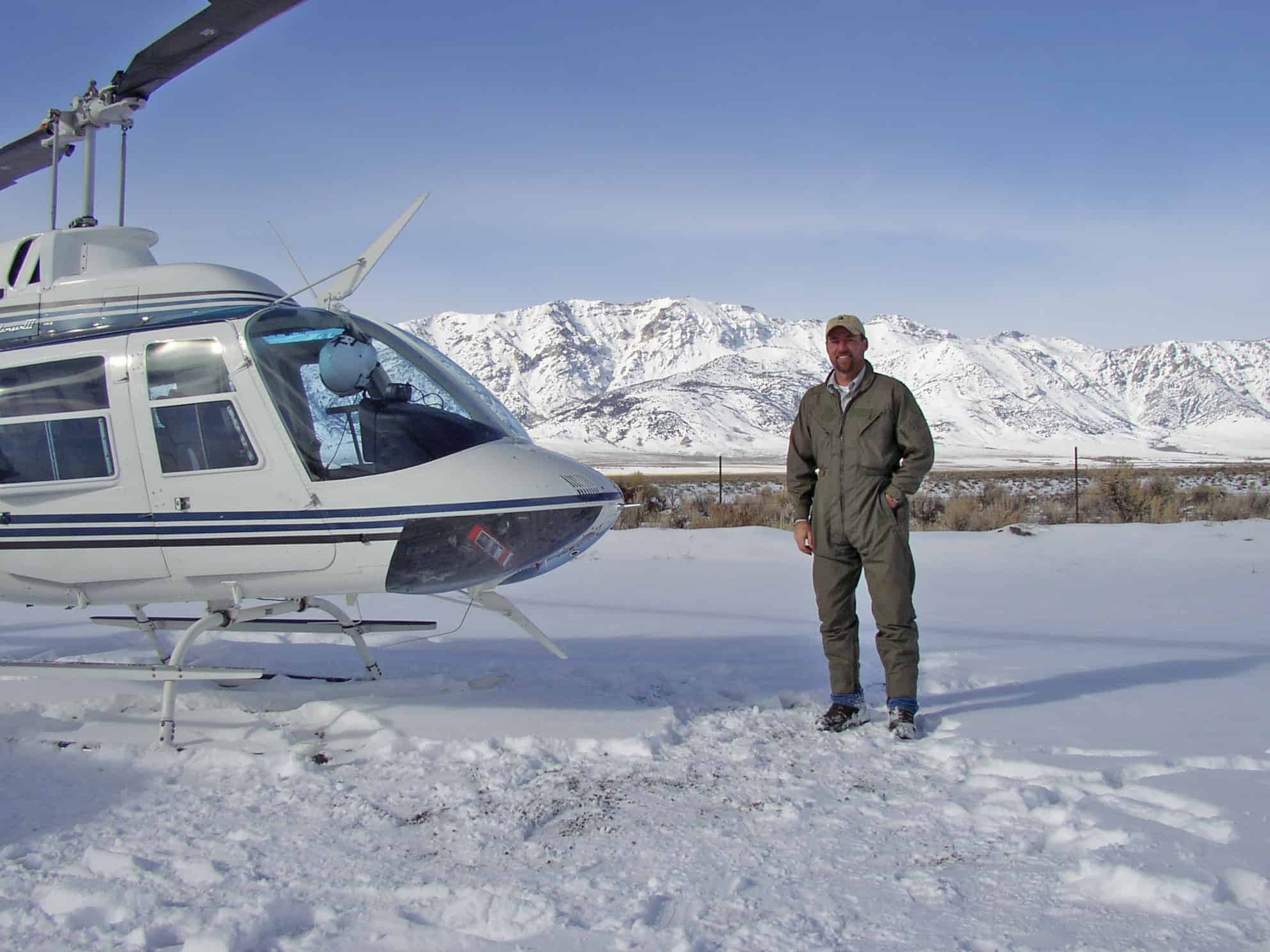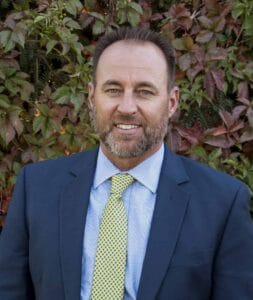Share this article
Q&A: Tony Wasley reflects on his career
When Tony Wasley retires on Dec. 30, he will cap nearly 10 years as the director of the Nevada Department of Wildlife. One of the nation’s longest-serving wildlife directors and a longtime TWS member, Wasley came up the ranks from field biologist over a 25-year career. Nevada has experienced tremendous change in that time. While the state is overwhelmingly rural and wild—federal agencies manage over 80% of the land—the demographics are extremely urban. Most of the population is concentrated in just two cities.
The relevancy of wildlife agencies in a country with changing wildlife values has become an important issue for Wasley, who last year was president of the Association of Fish and Wildlife Agencies. A national study found the public’s wildlife values are becoming less traditional and more mutualistic—seeing wildlife as part of one’s social community rather than a commodity—and Nevada saw some of the greatest changes.
We talked to Wasley about his career and his vision for the future of wildlife management. His answers are edited for brevity.
Why retire now?
From a leadership perspective, you have these windows of opportunity to affect meaningful change. I’ve been blessed to have had probably more than my fair share of opportunities to address issues and try to affect meaningful outcomes on a whole host of issues. As I move into more of that legacy period of my career and have a desire to be able to have lasting and meaningful benefits in the conservation space, it feels like the right time for that. I honestly don’t know what’s next, but I have a strong desire to remain engaged in conservation.
What do you see as some of the biggest challenges that you faced?
So few people understand the breadth and depth of the mission of a state wildlife agency. The uniqueness of the funding model is a challenge because you’re so reliant on a disproportionately small funding base, and that brings with it some expectations. They’re difficult to reconcile with different, broader expectations, which speaks to another challenge—changing wildlife value orientations.
In Nevada, you have a state that’s land is 85% federally administered by agencies who have a multiple-use mandate. Trying to accommodate multiple uses—oftentimes conflicting uses for development, energy, mineral resources, recreation, feral horses and burros—doesn’t mean allowing “everything everywhere.” But it means doing things in a way that can best accommodate all of those—the greatest good for the greatest number for the long term.
What were some of your biggest successes?
The successes align with those challenges. I think we have very strong and productive relationships with our industry partners. I think we have recognized value at our state legislature. I think we have a strong relationship with our commission. We’ve made several acquisitions of key wildlife habitats around the state. We’ve enhanced the facilities, professional development opportunities, training, technology—from habitat connectivity and corridors with the aid of GPS collars to groundbreaking sage-grouse research and partnerships.
If there was a single success, I think the one word that would embody it best is “culture”—the way that we hire, the way that we train, the professional development opportunities, trying to foster a lifelong learning environment, to have adaptable employees who can pivot rapidly in the face of change. That’s really the nexus to The Wildlife Society. We’ve encouraged membership in professional societies and paid for travel to and participation in events in that spirit of lifelong learning.

Tony Wasley began with the Nevada Department of Wildlife as a field biologist. He’s seen here conducting post-deer hunt surveys in the Ruby Mountains. Credit: Norv Dallen
Why has TWS membership been so important to you?
For me, the advantage of membership to The Wildlife Society is that it promotes not only the specific technical details that we learn, but that it keeps our minds seeking more information, more knowledge that we can apply in our jobs. And it perpetuates that learning environment. It’s constant inquiry. It’s that intrinsic curiosity that makes us all better at what we do, makes us more adaptable, makes us better biologists, better employees. I think it’s hugely important to professional development as well as culture.
What lessons does Nevada hold for wildlife management in the rest of the country?
If you look at the ranking of states based on urbanization, you’ll see that Nevada is either at the top or near the top. There are degrees of it all around the country, but it is even more pronounced in Nevada. When you think about the state, at 3.25 million people, 2.5 million-plus are in Las Vegas. They oftentimes don’t know the wildlife issues or, quite frankly, don’t care.
That presents some significant challenges. As you look around the country, you see these changing wildlife value orientations, and the science tells us that they are strongly related to urbanization, levels of education and earnings. Many of the conversations that are beginning to happen nationally around the makeup of commissions and around ownership of wildlife have been occurring in Nevada for a longer time and are manifesting themselves in some interesting litigation and policy discussions. As one of the most urbanized states, it is certainly a sign of things to come.
Why has the issue of the relevancy been so important to you?
If the public’s wildlife resources are held in the public’s trust, it’s important that state wildlife agencies have a voice— at the legislature, with the commission, with land management agencies. The stronger that voice, the greater the likelihood that the outcome will be consistent with their missions.
Our ability to do our job is dependent on relevancy. The strength of our voice in those conversations is dependent on our relevancy. And ultimately, the outcomes for conservation are dictated by that relevancy.
What are your recommendations to other state agencies for staying relevant?
It’s important that we as state wildlife agencies are respectful of processes and the fact that there will be different perspectives and opinions presented at our state legislatures and at our wildlife commission meetings. However unscientific or unsupported various decisions or perspectives may appear to us, participants need to have an open and honest opportunity for engagement.

Tony Wasley worked for more than 25 years at the Nevada Department of Wildlife, including nearly 10 as the department’s director. Credit: Courtesy Tony Wasley
Some people focus on our differences rather than what we have in common. Some people define themselves by what they choose to hate. But it’s the process and decorum around that potential discord that either is respectful or not. It’s foolish for us to think that we can push people away from controversial wildlife discussions and have a more positive, more productive relevance and effectiveness as a result. We need to have open, honest processes for engagement, regardless of the opinions and perspectives expressed.
As public attitudes become more mutualistic, it seems like people are more passionate about wildlife than ever. Is there an upside to it?
That’s really how I try to look at it. Would you rather have a growing population of mutualists or a growing population of people who feel distanced from wildlife? I would rather see more mutualists who have high value for wildlife and try to help achieve an appreciation for the breadth and depth of the agency mission and the uniqueness of state wildlife agency funding models.
It’s always the extremes that dictate the terms of the debate, but there’s a spectrum here. I think there is potentially a gateway to relevancy in having more people who care about wildlife. If we are all doing good things for conservation and wildlife, we may disagree, but that is a luxury relative to some places in the world and some species that have no advocates.







